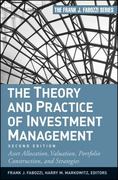Answered step by step
Verified Expert Solution
Question
1 Approved Answer
Mutual funds are investment firms that invest the combined contributions of thousands of shareholders in many securities called portfolios. The way your mutual fund is
Mutual funds are investment firms that invest the combined contributions of thousands of shareholders in many securities called portfolios. The way your mutual fund is treated for tax purposes is determined by the type of investments within the fund's portfolio. Most distributions you receive from a mutual fund are taxed as investment income. The difference between ordinary income and capital gains is determined by how long that fund has held an individual investment within its portfolio and not how long you have owned shares in a mutual fund. The difference between your ordinary income tax rate and your corresponding capital gains tax rate can be quite large. For those in the and income tax brackets are not required to pay any income tax on longterm capital gains. Individuals in the to tax brackets must pay only tax on capital gains. Those in the highest income tax bracket of are subject to a capital gains tax.
In this activity, you will discuss taxes on mutual fund income. Describe a situation when passthrough status of mutual funds can be of disadvantage to an investor.
Step by Step Solution
There are 3 Steps involved in it
Step: 1

Get Instant Access to Expert-Tailored Solutions
See step-by-step solutions with expert insights and AI powered tools for academic success
Step: 2

Step: 3

Ace Your Homework with AI
Get the answers you need in no time with our AI-driven, step-by-step assistance
Get Started


